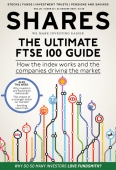Archived article
Please note that tax, investment, pension and ISA rules can change and the information and any views contained in this article may now be inaccurate.
Act quick and snap up CVS as it looks a prime takeover candidate

The veterinary sector is involved in some major M&A at the moment and we wonder if long-term predator CVS (CVSG:AIM)
could become prey.
Mars Petcare – the brand behind the Pedigree and Whiskas pet food – also has veterinary health interests and in June acquired UK services group Linnaeus which owns 87 veterinary practices.
Private equity group BC Partners earlier in August bought VetPartners, owner of 260 primarily small animal UK vet practices, for £700m.
These transactions highlight the industry’s structural attractions. Animal lovers prioritise spending on the wellbeing of their pets, making earnings fairly resilient among veterinary groups.
CVS operates 482 veterinary surgeries across the UK, Netherlands and Republic of Ireland, plus it has an online store selling medicines and pet food, four diagnostic laboratories and seven pet crematoria.
It has been consolidating a fragmented industry, snapping up small animal, equine and farm animal veterinary operations and boasting a strong pipeline of acquisitions in the UK, Netherlands and elsewhere.
So why would someone pounce on CVS now? The answer is simple. Its share price is currently weak, making it a sitting duck for someone interested in the sector and happy to take a long-term view of its prospects.
It trades on approximately 13 times EV/EBITDA (enterprise value to earnings before interest, tax, depreciation and amortisation). Broker N+1 Singer believes BC Partners paid 15.2-times for VetPartners.
CVS has been marked down because of some trading problems caused by bad weather earlier this year and recruitment challenges. The Brexit vote led to a shortage of clinicians coming to the UK, meaning CVS had to pay more money to secure available workers. Furthermore, some of its acquisitions haven’t performed to expectations.
All of these issues aren’t a reason to suddenly turn your back on what has historically been a superb investment. For example, CVS’ shares increased by 460% in value between November 2013 and 2017.
The best times to buy a share are often when the market has lost interest, and we certainly think that applies to CVS at the moment.
Results on 27 September may cause a slight wobble in the share price as CVS has already warned that earnings would only be ‘broadly in line’ with expectations. That word ‘broadly’ normally implies a slight miss.
For the year to June 2018, stockbroker N+1 Singer forecasts adjusted £36.1m pre-tax profit (2017: £33.5m) and a dividend hike from 4.5p to 5.5p, ahead of £42.9m pre-tax profit and a 6.5p dividend in the current financial year. (JC)
Important information:
These articles are provided by Shares magazine which is published by AJ Bell Media, a part of AJ Bell. Shares is not written by AJ Bell.
Shares is provided for your general information and use and is not a personal recommendation to invest. It is not intended to be relied upon by you in making or not making any investment decisions. The investments referred to in these articles will not be suitable for all investors. If in doubt please seek appropriate independent financial advice.
Investors acting on the information in these articles do so at their own risk and AJ Bell Media and its staff do not accept liability for losses suffered by investors as a result of their investment decisions.
Issue contents
Big News
- Hill & Smith directors take advantage of profit warning-led share weakness to snap up stock
- Investors shift focus to defensive stocks
- Pressure on corporate brokers implies potential wave of M&A
- Trump attacks the US Federal Reserve
- London hoteliers set to report bumper numbers following July heatwave

 magazine
magazine









